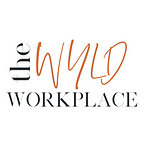The War on Talent
Have you heard about “The Great Resignation”? It is a term coined by Anthony Klotz, associate professor of management at Texas A&M, that refers to the release of accumulated resignations stalled by the pandemic. According to the Department of Labor’s Job Openings and Labor Turnover Summary, in April of 2021 the United States saw more than four million people turn in their notice. Surveys show that anywhere from 25% to upwards of 40% of people are thinking about quitting their jobs. A Monster.com survey reports upwards of 95%; however, those on Monster.com are likely a self-identified group of job seekers.
But why a “Great Resignation”? According to Klotz, the pandemic year gave workers an opportunity to realize alternatives to work-life balance and work flexibility, employees have engaged in passions that are more fulfilling or demonstrated skill transferability, and some have found an exit from the 9–5 office grind. In short, “How we spent our time before the pandemic may not be how we want to spend our time after,” says Klotz.
Try not to be alarmed. The Great Resignation is just another battle in the “War for Talent;” a war business leaders have been waging for decades.
The “War for Talent” was coined by Steven Hankins of McKinsey & Company in 1997. It refers to an increasingly competitive landscape for attracting, recruiting, and retaining talented employees. Recognizing the strategic importance of high-caliber talent is imperative regardless of the state of the economy. The other side of this global pandemic is about to increase the competitive landscape, yet again. Do you have the right tools and defenses to weather the Great Resignation battle?
Organizational Tools
- Benefits & Perks: There is something to be said about improving compensation, benefits, and perks — the typical go-to’s in the talent wars.
- Work environment & location: Now is definitely the time to consider work environment and location; remote or hybrid work locations can improve your company’s position in the talent recruiting efforts.
- Learning & Development: Lean in on continuous learning and development that invests in employees and builds an internal talent pipeline.
As your organization moves forward, adapting to new ways of working post-pandemic, make sure to spend time adjusting the culture that will support the changing “way things are done.”
- Review & Reset: Vision, Values, Norms, Habits. How things are done is often rooted in the company vision, values, norms, and habits both formal (i.e., policies and procedures) and informal (e.g., how current employees show new employees “the ropes”). Over the last 18 months, many work habits and experiences have changed, some dramatically so. Check back in. Do those still represent how the company will get things done going forward?
- Engage the workforce in culture work: Ask, Listen, Measure, Gather. Create a safe way for people to share their opinion and listen with empathy, and without judgment. Solicit input through surveys, stay interviews, exit interviews, and focus groups. Measure the company culture to see how well it aligned with the employee experience. Determine what might be contributing to talent shifts from the data gathers in stay and exit interviews. Define your next steps to improving corporate culture.
- Live the Culture: Every Person, Every Level, Every day. Build culture into every aspect of the organization for every employee to ensure the norms, habits, and the way things are done aligns with the collective vision and brand the company is striving towards. Set goals with values in mind, evaluate performance and offer rewards with values in mind, and recruit with values in mind.
The most important takeaway is simply to take the time to reflect on your company culture. There is a good chance cultural shifts have happened and more are on the horizon. This is the time to re-engage company culture work. You never know, the battle of “The Great Resignation” could be a win-win for employers and employees, as they both shift for the best culture fit.
About the Author
Originally published at https://www.wyld.work on February 2, 2022.
